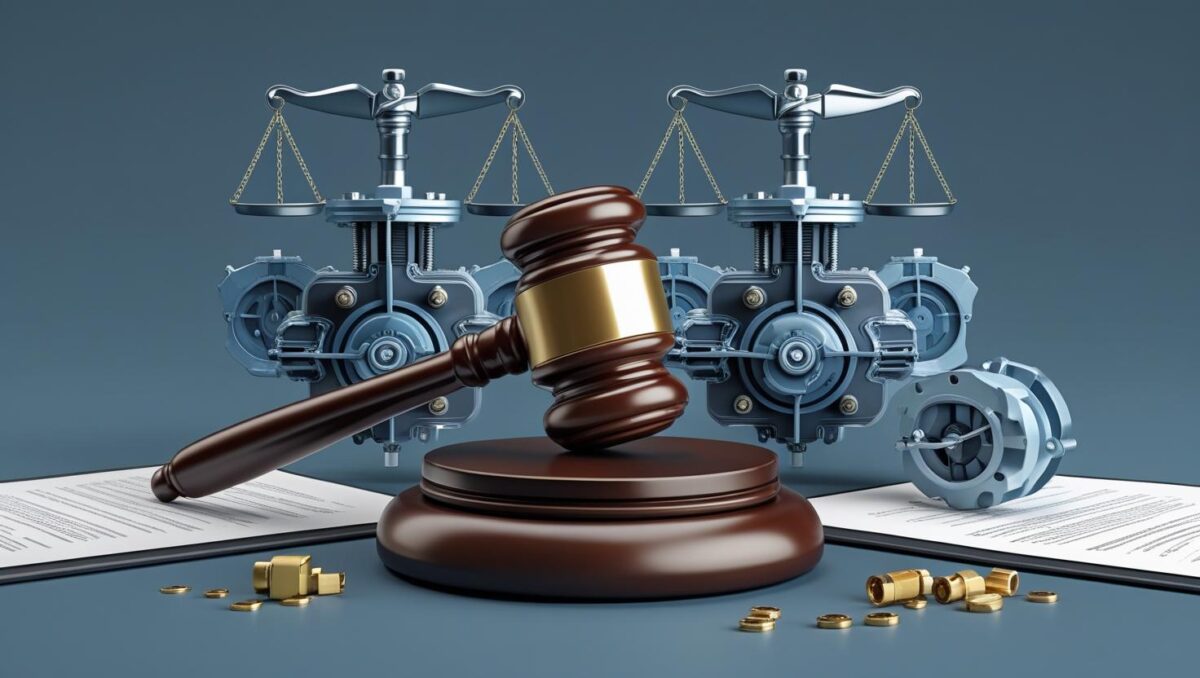In the case of Oramed Ltd. v. Controller General of Patents & Designs, the Calcutta High Court examined the refusal of a patent for an oral insulin composition. The Court held that inventive step cannot be determined by combining prior art without a clear rationale and stated that therapeutic efficacy is not a requirement under Section 3(e) of the Patents Act. The refusal order was set aside and the matter was remanded for fresh consideration.
Read more about Oral Insulin Patent Case: Efficacy Not a Requirement Under Section 3(e)Category: Patents
Cannot raise new ground while refusing patent, rules Delhi High Court
Delhi HC set aside a patent refusal against Proprietect L P, citing violation of natural justice, failure to consider amended claims, and lack of reasoning.
Read more about Cannot raise new ground while refusing patent, rules Delhi High CourtDelhi High Court Patent Injunction: Aquestia Wins Against Automat Industries
Delhi High Court grants patent injunction to Aquestia, stopping Automat from selling Hydromat valves over suspected patent infringement.
Read more about Delhi High Court Patent Injunction: Aquestia Wins Against Automat IndustriesPatented But Still Infringing: Delhi HC Stops Hydromat Valve Sales
In the case of Aquestia Limited vs Automat Industries Private Limited & Ors., the Delhi High Court granted an interim injunction restraining the defendants from manufacturing and selling their ‘Hydromat’ valves. The court held that even a patented product can infringe an earlier patent, and found that the defendants’ valves incorporated the core features of the plaintiff’s fluid control valve patent claims.
Read more about Patented But Still Infringing: Delhi HC Stops Hydromat Valve SalesSquibb Secures Interim Injunction Against Zydus in Nivolumab Patent Dispute
The Delhi High Court has issued an interim injunction restraining Zydus from launching its Nivolumab biosimilar, siding with Squibb’s claim of imminent patent infringement.
Read more about Squibb Secures Interim Injunction Against Zydus in Nivolumab Patent DisputeNo Injunction After Patent Expiry, Holds Delhi High Court
In the case of Kabushiki Kaisha Toyota Jidoshokki v. LMW Limited, the Delhi High Court refused to grant an interim injunction after the expiry of the patent in suit. The Court held that patent rights lapse with expiry and cannot be enforced thereafter.
Read more about No Injunction After Patent Expiry, Holds Delhi High CourtDelhi HC Remands Oxidation Process Patent Rejection, Cites Invalid Section 2(1)(j) and 59 Findings
In the case of Treibacher Industrie AG v. Assistant Controller of Patents, the Delhi High Court set aside the refusal of a patent application for a catalytic oxidation process. It held that the amended claims qualified as a process invention and were within the permissible scope of amendment under Section 59.
Read more about Delhi HC Remands Oxidation Process Patent Rejection, Cites Invalid Section 2(1)(j) and 59 FindingsCourt delivers an ‘Iconic’ ruling in JOLLY RANCHER trademark dispute
Gujarat High Court quashes Shiv Textiles’ trademark suit against Iconic IP Interests LLC for lack of Indian jurisdiction and no valid cause of action under CPC.
Read more about Court delivers an ‘Iconic’ ruling in JOLLY RANCHER trademark disputeCourt Awards ₹50 Lakh to GSP Crop Science in Patent Infringement Case Over Agrochemical Formula
Delhi HC orders ₹50 lakh in damages to GSP Crop Science for patent infringement in agrochemicals, affirming seller liability under Indian patent law.
Read more about Court Awards ₹50 Lakh to GSP Crop Science in Patent Infringement Case Over Agrochemical FormulaPatented Biologics and Section 104A: No Process Disclosure Without Proving Product Identity
Roche sued Zydus for infringing its process patent on Pertuzumab. The Delhi High Court held that Roche had not shown Zydus’s biosimilar was identical to its product. Without identity, Section 104A did not apply, and the Court refused to compel Zydus to disclose its manufacturing process.
Read more about Patented Biologics and Section 104A: No Process Disclosure Without Proving Product Identity








